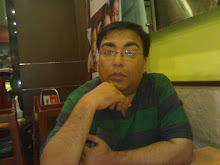
If you think carefully, Adarsh Cooperative Housing Society is aptly named. It is really a ‘model’ society and a perfect example of how politicians, bureaucrats and even army generals have ‘cooperated’ to find a nice sea facing home for themselves in Colaba in Mumbai. This is a dream alliance between these worthies, brazenly grabbing public property and constructing a 100 ft, 30 story building, which somehow no one noticed, while under construction. The builders managed to get all permissions from the authorities including the coastal zone authorities, naval authorities, local Mumbai municipal authorities and the state government, without anyone even raising their eyebrows. The building merrily came up, while one assumes assorted army generals, naval admirals, state government ministers and civil servants eagerly waited to move into their new apartments. Anyone who has ever tried to build a small extension to his legitimate home in Delhi or Mumbai, would be able to fully understand the magnitude of the task so deftly accomplished by the members of the Adarsh Housing Society.
Why should we be ashamed and perhaps alarmed at this blatant attempt at grabbing prime property in Mumbai. After all, we recently had the spectacle of Suresh Kalmadi and his gang along with the Delhi government authorities siphoning off billions, while organising the Common Wealth Games in Delhi, everyone knows that the real estate sector in India is perhaps the most corrupt and various bahubalis regularly grab land and buildings all over UP and Bihar, almost on a daily basis.
Well here are my reasons.
Adarsh Cooperative Housing Society involves politicians of all hues. Thus there are Shiv Sainiks, who were apparently in power in Mumbai, when the ball started rolling and then there are the Congressmen, the present chief minister of Maharashtra, Ashok Chavan, who as revenue minister in the previous government, got the project cleared from the then chief minister, Vilas Rao Deshmukh (now a Union Cabinet Minister to boot). Thus this loot cuts across party lines and hence even the opposition isn’t baying for the chief minister’s blood. Thus this is a unique collaboration between politicians, army-men and civil servants who have all joined hands to make a mockery of our trust.
Most alarming is the involvement of army generals, two of them are former Chiefs of Army and one an Admiral of the Indian Navy. So far most people believed that the Indian army as an institution is largely incorruptible and that honour amongst army-men runs high. Apparently, this is a myth. Adarsh Co-operative Housing Society was meant to offer subsidised housing to the families of the martyrs and the brave soldiers of the Kargil war. None of the intended beneficiaries even knew of these apartments, while the army brass managed to lay their hands on them without much trouble. Sadly, these are the men, who till not so long ago led more than a million men in uniform, commanded vast national resources and were responsible for the security of our great nation. They presumably bought armaments worth billions from vendors across the globe. If they could be swayed so easily, lured by an apartment in Mumbai, imagine what else might be underway in the shadowy corridors of the ministry of defense. Imagine how deep (or should I say high) the rot runs in the hallowed institutions of the Indian Army and Navy. While, one has come to expect the worst from our politicians (whether, Ashok Chavan, Suresh Prabhu, Vilas Rao Deshmukh, Suresh Kalmadi or A Raja), to expect the same from the Generals of the armed forces is truly shocking.
To make matters worse, life goes on as usual for everyone in Mumbai. The Congress Party is hard pressed to find a replacement for the tainted chief minister, the opposition parties are quiescent, the generals are retired and at home, the bureaucrats continue to serve their political masters, the CBI has commenced its never-ending investigations and ordinary people like you and me go about our lives without much thought to the cancer of corruption, which keeps growing everyday.
In the late 1980′s Rajeev Gandhi lost power, when his name cropped up as a possible beneficiary of a pay-off from Bofors, the Swedish arms manufacturer. The deal was all of Rs. 62 Cr. Today hardly any eyebrows are raised, even when a few thousand crores of public money is swindled by venal politicians (and now by army generals as well), whom we religiously elect every 5 years.
This is how far we have come down this slippery road.














